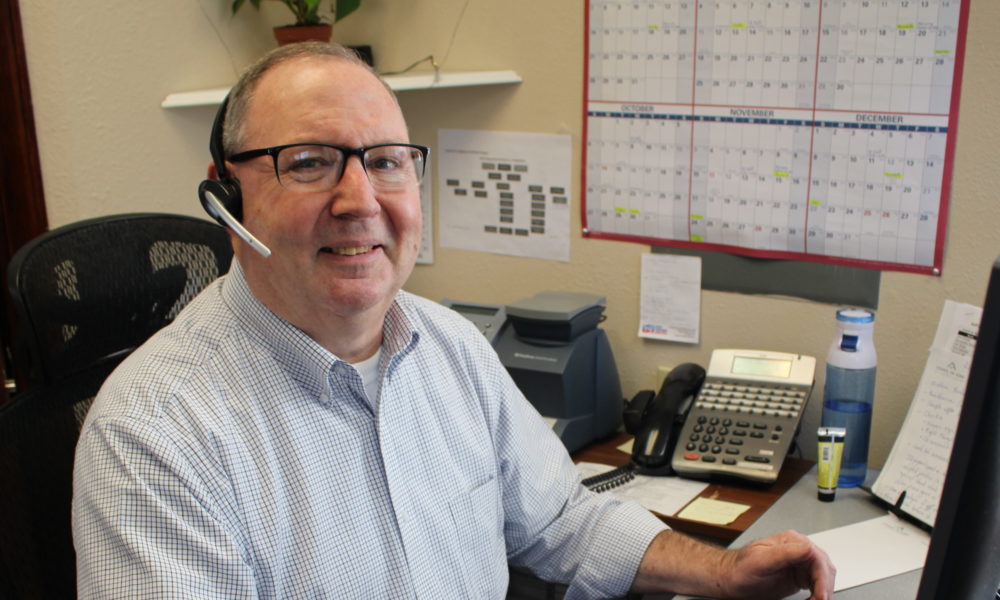USE THIS WORKSHEET WHEN THE UNEXPECTED OCCURS AND YOU NEED TO GET HELP FOR AN OLDER LOVED ONE
Bob Bailey
Information and Referral Specialist
As an Information and Referral specialist for the Council on Aging of Central Oregon, I interact with dozens of people each week. In fact, most of my new relationships begin when an older adult–or someone who cares for one–undergoes a sudden or unexpected life change. Perhaps a near fall has led to interest in improving a home’s safety. Or a just-turned-65-year-old wants to know the difference between Medicare and Medicaid. (There is one.) Maybe an adult child who is home for the holidays notices that a parent needs support with maintaining their diet or hygiene. Sometimes a devoted spouse is experiencing caregiver burnout after months or years tending to a loved one with dementia.
Whether by phone, email, or in person, the people who reach out to us are looking for ways to support the safety, well-being, community connection, and independence of an older adult family member, neighbor, or friend here in Central Oregon. That’s because we provide older adults and their unpaid caregivers across the tri-county area with information, resources, and referrals on a range of topics, such as:
- Housing options
- Medicare/Medicaid
- Abuse and neglect
- Mental health
- Financial or legal issues
- In-home care
Our goal is to inform and empower, so the best aging-related decisions can be made in a given circumstance.
In the future, I’ll be writing on these subjects, but today I want to share how you can clarify your situation, which will help us identify and match you with appropriate programs, resources, and assistance.
Make Two Lists
This form, Where do I Start?, will help you organize your thoughts. Once you’ve printed it out:
List 1: Concerns and questions
Jot down all the issues that are troubling you. Are they financial? (‘How will we keep Dad at home?’) Physical? (‘Mom can’t can’t cook since she broke her hip.’) Mental? (‘I am so lonely.’) Environmental? (‘I need a ramp to leave my house.’) Then break the top issues into smaller sub-issues or add more detail. (‘Dad’s social security and pension cover monthly expenses for the house, but he’s going hungry.’)
Beyond the Council on Aging, make a list of the children, grandchildren, siblings, other relatives, friends, neighbors, church group members, and anyone else you trust to help. Identify who is nearby and can be supportive.
The very act of writing these lists can help minimize fear by giving you a clear sense of what you need to address and the personal resources and options that are available for support.
Once you’ve completed the form…
We’ll listen to your cares and concerns and work with you to understand obvious and underlying needs, your priorities, and effective options for the most basic request to a more complex scenario. And, wherever possible, we’ll match you with the best information, resources, and local referrals that enable you to make informed decisions for you or your older adult loved one.
Information and Referral services make up a major part of the Council on Aging’s offerings for adults aged 60+ in Central Oregon. Last year alone, we fielded more than 12,600 inquiries from older adults and their unpaid caregivers. To get free vital information and support in addressing aging-related issues, give us a call at (541) 678-5483 or send an email to info@councilonaging.org.


